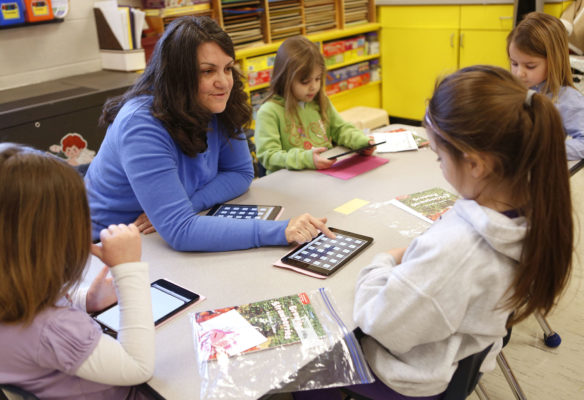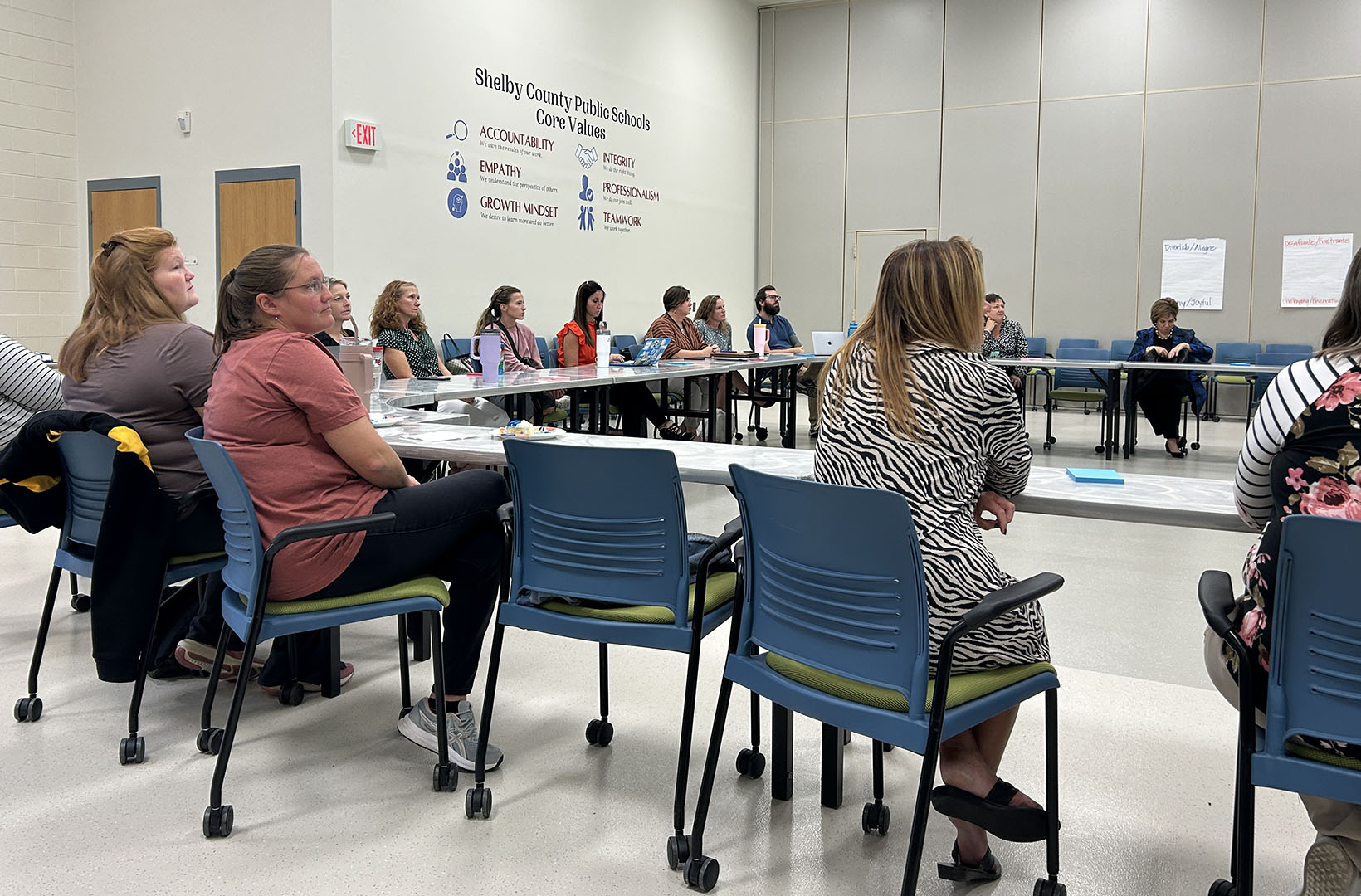
Even Kentucky’s youngest students can begin to make global connections. Global skills mean students can apply what they know from a variety of subjects and effectively communicate ideas to anyone in the world.
Photo by Amy Wallot, Feb. 21, 2013
By Kelly Clark
kelly.clark@education.ky.gov
When I talk at conferences, regional cadres and districts about the expectation that all students will be globally competent, I hear these versions of this refrain a lot.
“You don’t expect a 1st-grader to be globally aware do you?” “Our kids can’t do this,” or “This is a great idea, but we don’t need it at our school.”
I’m not sure if the bearers of these statements are aware of how they have just shut off an essential path for student readiness. If the goal of American education – of Kentucky’s K-12 educational system – is to ready our children for a chance at success when they graduate, saying they don’t need to be globally aware is akin to saying they don’t need to read or write. In our current knowledge economy, knowing information is useless unless you can do something with that knowledge. Global skills mean students can apply what they know from a variety of subjects and effectively communicate ideas to anyone in the world.
Our youngest learners are the most curious, the students most likely to make and cement global and language connections if made early in their academic career. The youngest students are already exploring their place in the world and know the essential fact that, “I am part of a larger community.”
Starting these globally focused discussions at 6th grade or leaving them to high school is no longer expedient. The move to more rigorous standards in all content areas of the Kentucky Academic Standards, and the fact that 21st-century skills are embedded in those standards, means that students already are accomplishing much of what the revised Global Competency and World Language Program Review is asking of our schools.
I think the initial resistance is partly fueled by confusion over what is being asked and partly by admitting we don’t know how to accomplish the program review assurance, which is stated very broadly:
“ensuring all students are globally prepared to support communities and companies and;
Ensuring all students are globally-aware citizens and workers who understand how to cooperate and compete in an increasingly globally-connected economy.”
Ensuring all students have access and opportunity to explore global connections in all their content areas is not as difficult as the program review assurance may make it seem.
For K-5 educators, this begins with making sure the standards are being taught with a high level of rigor and a focus on students demonstrating mastery through real world, authentic learning. Global education is about exposure to diverse cultures, peoples and places.
In the same vein that you can never be finished with education, global skills are ones that are learned and built upon over time; you never reach full global competence. By having a continuum of global learning that starts at kindergarten and deepens over time, students in 12th grade should be able to understand the complex interconnected forces that drive the U.S. economy and foreign policy, know and be able to collaborate with diverse cultures, and speak a foreign language.
The assurance is asking if you are being intentional about all students having access and opportunity to these essential skills. It will take students 12 years to develop the ability listed above. The assurance is asking if you are moving students toward that end goal.




Leave A Comment